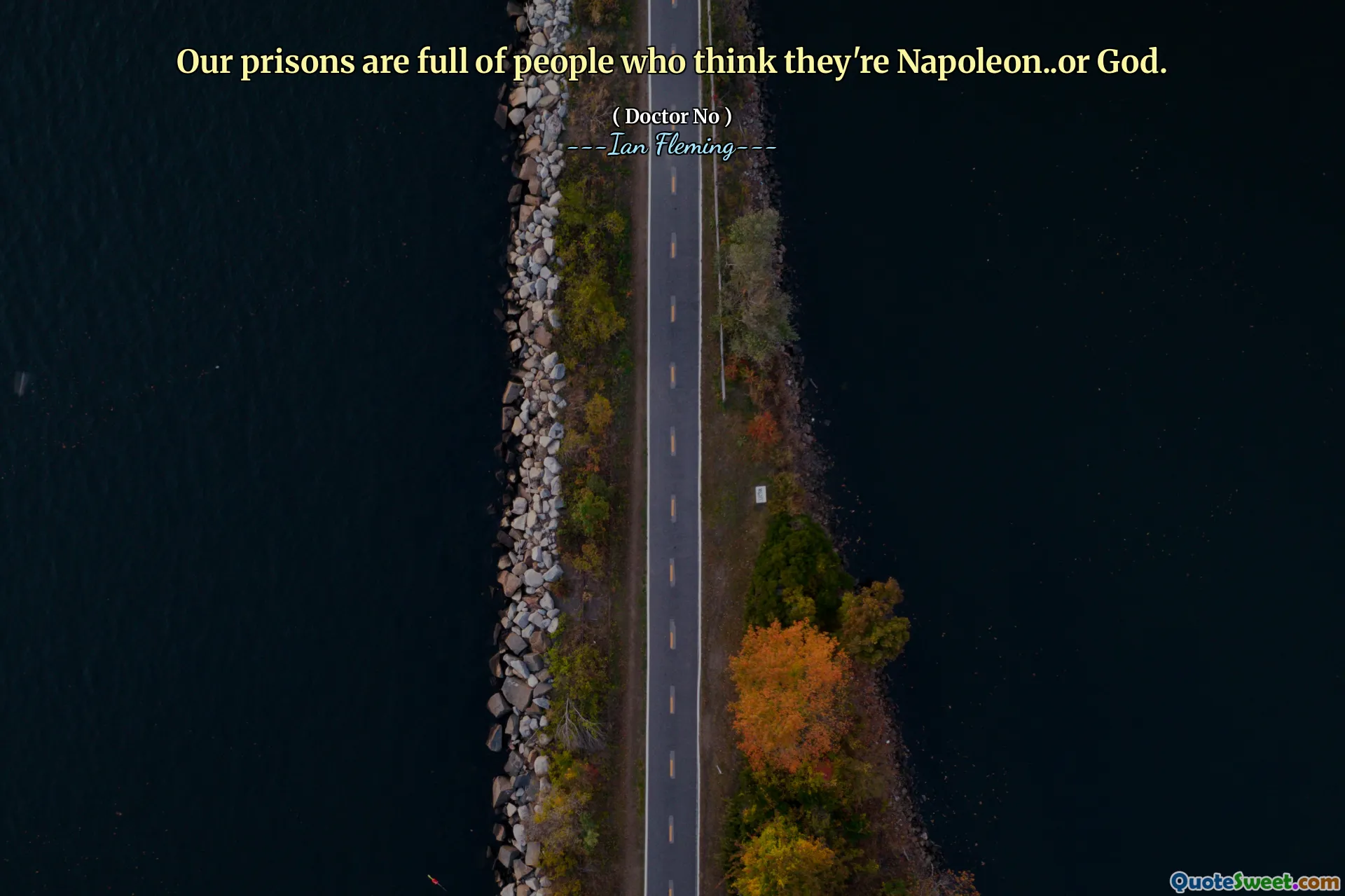
Our prisons are full of people who think they're Napoleon..or God.
This quote poignantly captures a critical psychological insight about the nature of certain criminals or individuals who fall afoul of the law. The reference to 'Napoleon' and 'God' symbolizes grandiosity and delusions of grandeur. Napoleon is known historically for his ambition, assertiveness, and quest for absolute power, while imagining oneself as God implies an even deeper sense of omnipotence and infallibility. These traits often accompany a dangerous disregard for societal rules and ethical boundaries, which can lead to criminal behavior or despotic governance.
In the context of this quote, prisons become not just physical incarceration centers but metaphorical manifestations of the consequences of these inflated self-perceptions. It's a sobering reminder of how unchecked ego and delusions of supremacy can isolate individuals from society and ultimately lead to their downfall. This idea also invites reflection on the psychological and moral dimensions of crime and punishment, suggesting that beyond the legal aspects, understanding personal psychology is crucial.
Moreover, the subtle comparison triggers a contemplation of power and its corrupting potential. Whether in the form of political leaders, dictators, or everyday individuals who overestimate their own significance, this pattern often results in harm not only to themselves but also to those around them. The quote encourages a deeper examination of humility, self-awareness, and the dangers of extreme self-importance as factors that resonate far beyond the prison walls.
Given its psychological and philosophical dimensions, it’s a thoughtful commentary on human nature and the social dynamics of control and rebellion.






